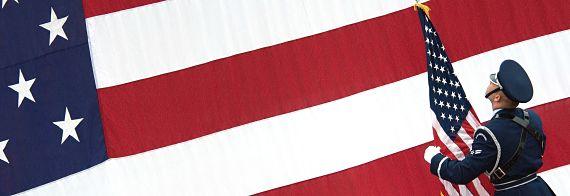We. We. We. We. We. We. Will Never Forget. Those were the words on the screen at the end of 8:46, a 9/11 film shown this weekend at the GI Film Festival. You could hear audience members sniffing, digging in their purses for tissues, taking long shaggy breaths. Like me, they were probably remembering their own 9/11. Their own experiences of warfighting and deployment. Their own loss of friends, family members, brothers in arms. We will never forget.
“Oh yes, we will,” said a nagging voice inside my head. “We will forget. We are already forgetting.” Although we are good people who intend to remember 9/11 and Fallujah and Pearl Harbor and Bunker Hill every Memorial Day, we do forget. We are a nation of forgetters. Not because we are thoughtless, but because we are designed to forget.
Earlier this month, scientists from the Scripps Research Institute announced that they identified the mechanism that is an essential part of actively forgetting memories. Although we used to think that forgetting was something that passively occurred over time, their findings show that the act of forgetting is an active process that is probably regulated by the brain.
I am picturing this mechanism like a teacher with a giant eraser following behind me on the chalkboard, erasing everything I write that I won't need for the test.
Which sounds like kind of a good idea. Like our brains are working for us, continually weighing memories, pitting them against each other, culling the most important. The scientists claim that the ability to actively forget is biologically efficient.
Yet the process of forgetting is hurtful in its efficiency when it comes to war. Watching the movie about 9/11, I was surprised how much I had let myself forget about the beginning of the war. I thought those memories were seared upon me. Realizing how our own memories--even our memories of the fallen--do fade is painful. It feels like we are letting them down. Which is probably why we use Memorial Day and Veterans Day and 9/11 to help us overcome the mechanism to forget things that hurt. These holidays become our counter-mechanism to remind.
We remind ourselves of the fallen. We remind ourselves of the battle scarred. We remind ourselves of the living who went forward for all of us. We. We. We. We. We. We. Will Always Remind.
Thank you Veterans and families for your service. Thank you for the lives you continue to lead. And know that we remind ourselves of you on this and every Memorial Day.
Check out Military.com’s Memorial Day 2012 website to see more about discounts, events, and the history of Memorial Day.









